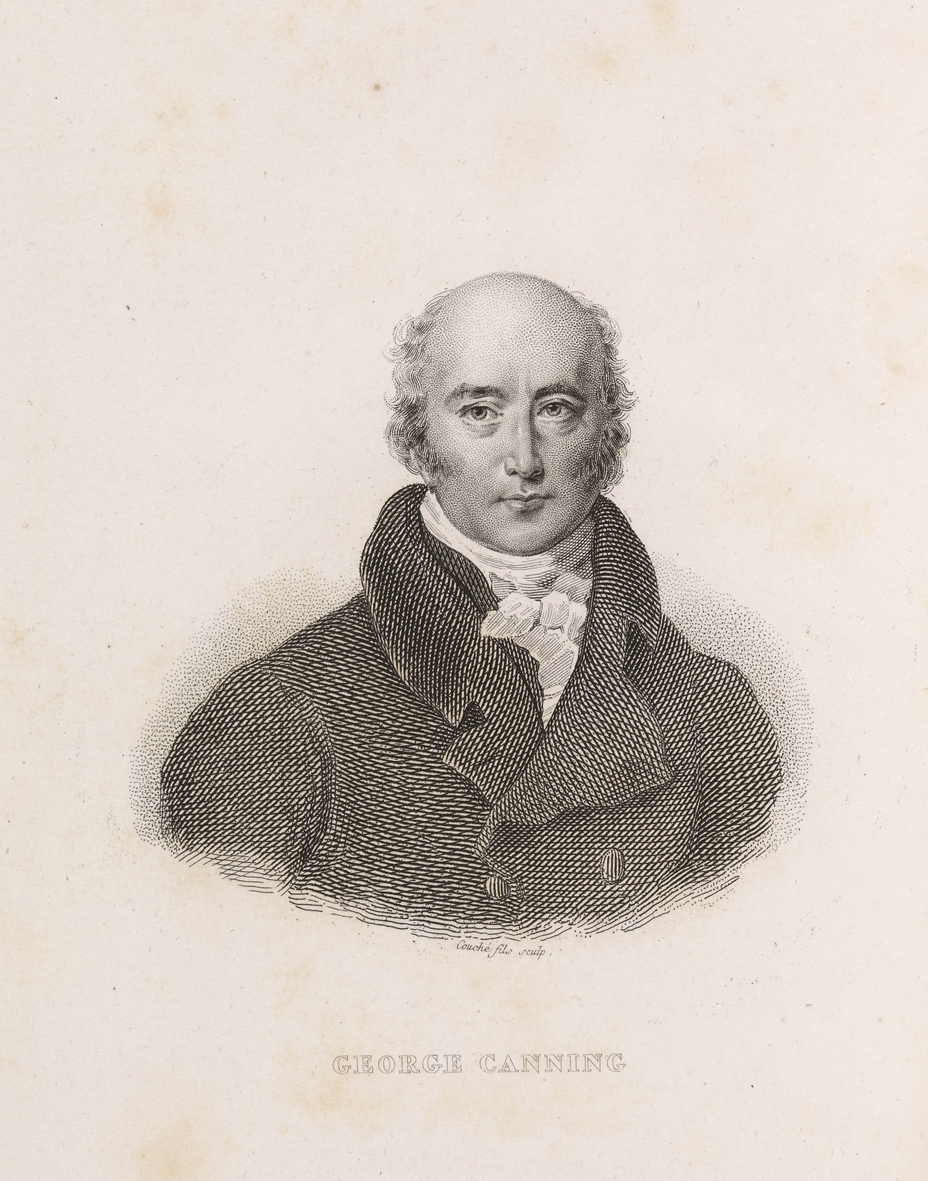George Canning ( 1770-1827 )

Prominent British statesman, born in London on April 11, 1770, to parents of Irish descent. Merely one year old, he lost his father and was raised by a wealthy uncle, who educated him at Eton College; he went on to read law at the University of Oxford.
He briefly practiced law, but soon turned to politics, in which he had developed a special interest from an early age. He was 23 when he was first elected as a Tory MP in 1793. A gifted public speaker, he soon rose to prominence in his party. In November 1795 he was appointed undersecretary of state for foreign affairs, an office he held until April 1799. From March 1807 to October 1809, a critical phase in the Napoleonic Wars, he served as secretary of state.
He became foreign secretary once again in September 1822, succeeding Lord Castlereagh, who had committed suicide one month earlier. As head of British diplomacy, Canning was called upon to deal with, among other foreign policy issues, the Greek War for Independence, which had broken out in early 1821. His stance on the Greek question differed to that of his predecessor: Castlereagh had adhered to the doctrine of preserving the territorial integrity of the Ottoman Empire so it could serve as an effective bulwark against Russia’s attempt to expand south. Canning, on the other hand, gave diplomatic support to the creation of an independent Greek state, believing that it would serve British interests in the eastern Mediterranean. To this effect, he saw to the shifting of British foreign policy towards Greek-friendly positions.
One of the earliest manifestations of the new, philhellenic wind that blew in London was Great Britain’s recognition of the naval blockade imposed by the Greeks on the Ottoman-controlled shores of the Ionian Sea. Not wishing to make contractual commitments to the Greeks, however, Canning rejected in the summer of 1825 the Act of Submission offered by the warring nation to London during what was a low moment in the war. On the contrary, he was in favour of British banks giving out two loans to the revolutionary Greek government, in 1824 and 1825, of nominal capital of £800,000 and 2 million, respectively.
At the same time, Canning sought to negotiate with Russia to resolve the Greek question. On his initiative, British-Russian negotiations began, which on April 4, 1826, resulted in the signing of the Saint Petersburg Protocol. This was the first international move towards establishing an independent Greek state, which was intended to remain a tributary of the Ottoman Empire.
Canning continued his diplomatic efforts, which intensified when he became prime minister in April 1827. The culmination of his activity was the signing, on July 6, 1827, of the Treaty of London between Great Britain, Russia, and France. The treaty reiterated the terms of the Saint Petersburg Protocol but added a crucial clause: The three Allies could use force to ensure compliance with the treaty. This provided the grounds for the Battle of Navarino – a landmark event for the Greek Revolution – which took place in October of the same year. However, Canning was no longer alive. He had died on August 8, 1827, having spent barely 119 days in office as prime minister of the United Kingdom.





